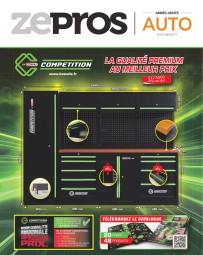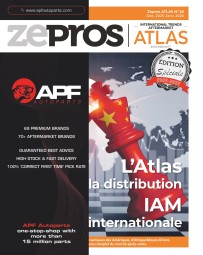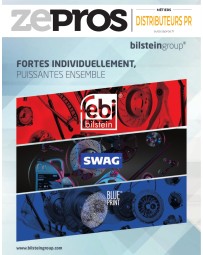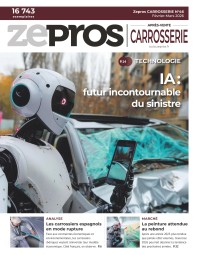
David Loy, Niterra: “We have chosen to keep supplying the aftermarket!”
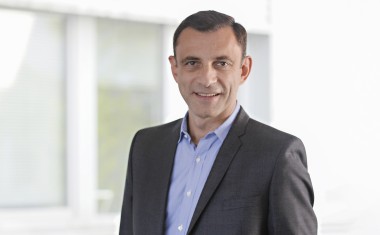
While the equipment manufacturer is preparing for the energy transition, it intends to continue to benefit from a dynamic aftermarket, with growth drivers in high-potential regions. Interview with David Loy, Managing Director of Niterra aftermarket.
What is your analysis of 2023?
David Loy: The fleet is ageing, which is good for the independent aftermarket. Demand is still strong and 2023 will be a good year, even if we have had to deal with significant increases in the cost of precious metals (iridium, platinum, etc.)… and it’s not over yet! The Middle East and Africa are growing markets, with increasing fleets. The situation has been more mixed in Asia: momentum is good in Japan, very good in India, while the Chinese market, with the explosion in sales of electric new vehicles, is more challenging for the independent aftermarket.
How are you dealing with the shift to electrification?
D.L.: We are a diversified group, with 15% of sales generated outside the automotive sector via the medical sector, which is a growing business unit. In the automotive sector, although we can expect to see a decline in volumes for our traditional ranges, this will mainly be in Europe (which accounts for ’only’ 30% of the Group’s sales). We have growth drivers in emerging markets, and the aftermarket is a strong part of Niterra’s business. The Group is also a specialist in technical ceramics – also used in EVs –and has simultaneously developed partnerships with start-ups to carry out various projects. In the long term, Africa, India and Brazil should be the main growth drivers for our traditional ranges, with growing fleets: electrification has already begun in Europe,Japan and China. Projections also indicate that the Middle East is likely to go electric as well. In countries where EVs are not yet a reality, increasingly stringent emission standards are likely to be introduced, to the benefit of new-technology internal combustion engines, which is good news for premium equipment manufacturers.
Do you think market consolidation will continue?
D.L.: Some equipment suppliers are making strategic choices and, in view of the investment involved, may refocus on EVs; others, on the other hand, may specialise in the aftermarket. As far as Niterra is concerned, while solutions to address fleet electrification are being developed, the Group has decided to continue supplying the aftermarket with spark plugs and sensors for as long as possible. Concentration will also continue among distributors. The big players will undoubtedly be looking for new sources of growth by moving into new markets. It’s also interesting to observe what’s happening in these markets: in China, for example, some of them have rapidly switched from a very traditional distribution model to digital. Even to the point of bypassing certain tiers! But they too are likely to have to reinvent themselves in the face of fleet electrification, and could be looking for new outlets, in Europe for example.
What are your anticipations for 2024?
D.L.: Some raw materials are still showing inflationary signs, and there are concerns about geopolitical tensions. But the market is buoyant, with the world’s vehicle fleet continuing to age, opening up new prospects for certain products that people would not change, or at least very rarely.
